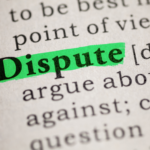Success For Bankrupt’s Pension Scheme Rights: Wilson v McNamara

We were instructed concerning a dispute between an Irish citizen (A) and the Trustee of his bankruptcy estate, on a question of whether the benefits of A’s pension formed part of his bankruptcy estate for the purposes of section 283(6) and section 306 of the Insolvency Act 1986.
A, had been unsuccessful in arguing his rightful entitlement to his pension, in correspondence with the Trustee. Once instructed, we carried out a detailed analysis of the position in law and put forward A’s case to the Trustee.
As the Trustee did not accept the position in correspondence, we took the decision to take prompt action and make a formal application on behalf of A, for a declaration by the Court that A’s entitlements and proceeds of his pension, fell outside his bankruptcy estate. In support of the application, we relied on the decision of Nugee LJ in Wilson v McNamara [2022] EWHC 243 (CH) and the impact of Article 49 of the Treaty on the Functioning of the European Union (TFEU) on section 11 of the Welfare Reform and Pensions Act 1999 (WRPA 1999).
Section 11 of WRPA 1999, removed approved pension arrangements from the scope of a bankruptcy estate. However, the Irish pension scheme was not an approved pension arrangement. In Wilson v McNamara, Mr McNamara referred the matter to the European Court of Justice (ECJ), who considered it breached Article 49 of the TFEU, being a restriction on the freedom of establishment. The ECJ held section 11 was indirectly discriminatory unless it could be objectively justified in the public interest. The reference happened before the UK withdrew from the EU and was thus, binding.
Following the application, we effectively maintained A’s position in correspondence with the Trustee’s legal representatives. Our analysis of the relevant law and its application in A’s specific case was strong, and we ensured that the case was put firmly to the Trustee. Our aim was to conclude the dispute as swiftly and as cost effectively as possible, for A.
Through maintaining a firm and static approach, we managed to settle the dispute, bringing the Trustee to see the flaw in his position. As a result, the Trustee conceded and consented to the entire proceeds and benefits of A’s pension being directed fully to A, only.
As we acted with speed, we managed to settle the dispute and avoid the hearing of the application and by doing so, saved significant legal fees for A and no order for costs, whilst fully protecting A’s rights relating to his pension.
Get in Touch
With years of litigation experience, our advisers can help you navigate every process, ensuring that you take best steps towards achieving your goals.

